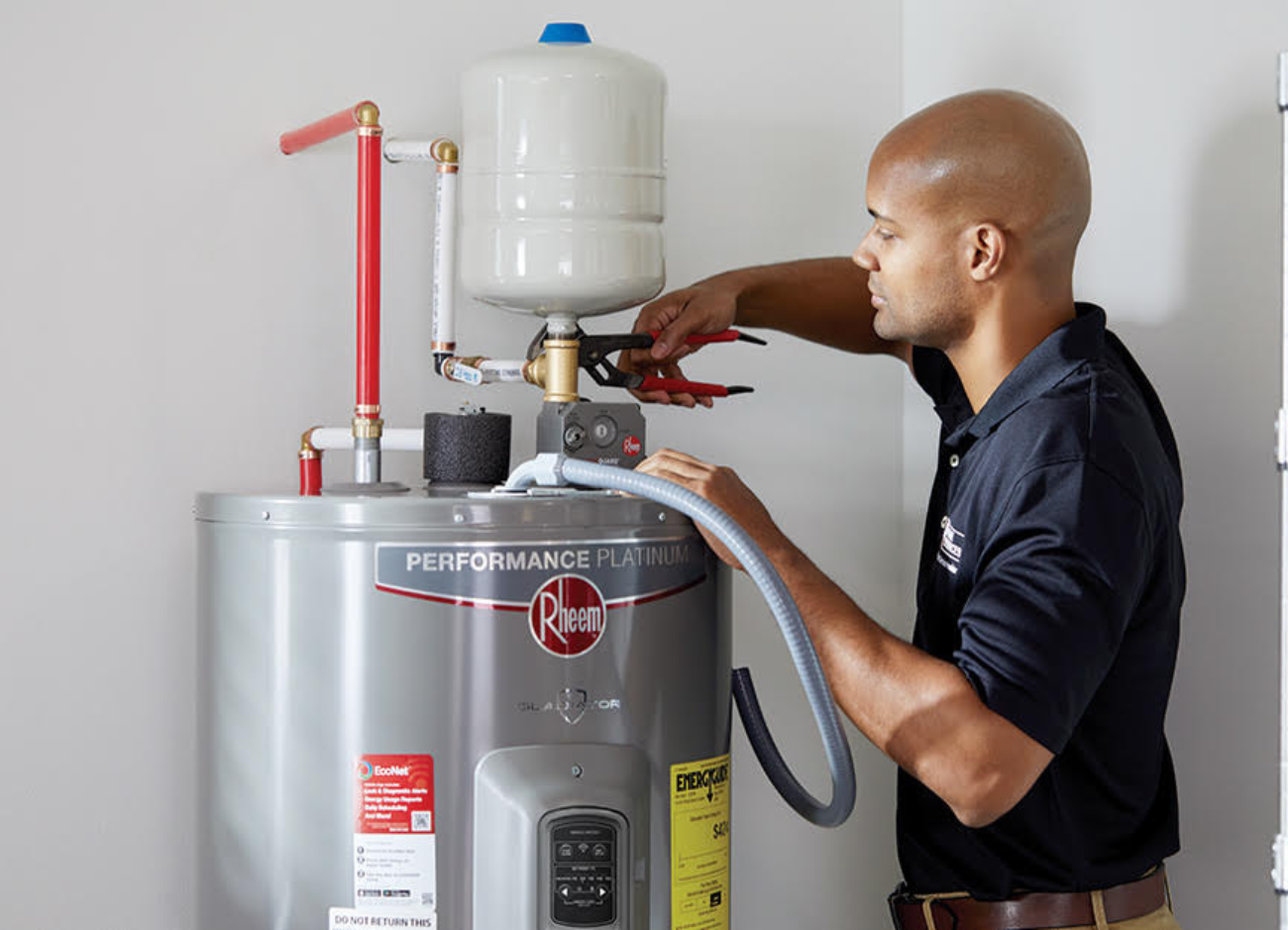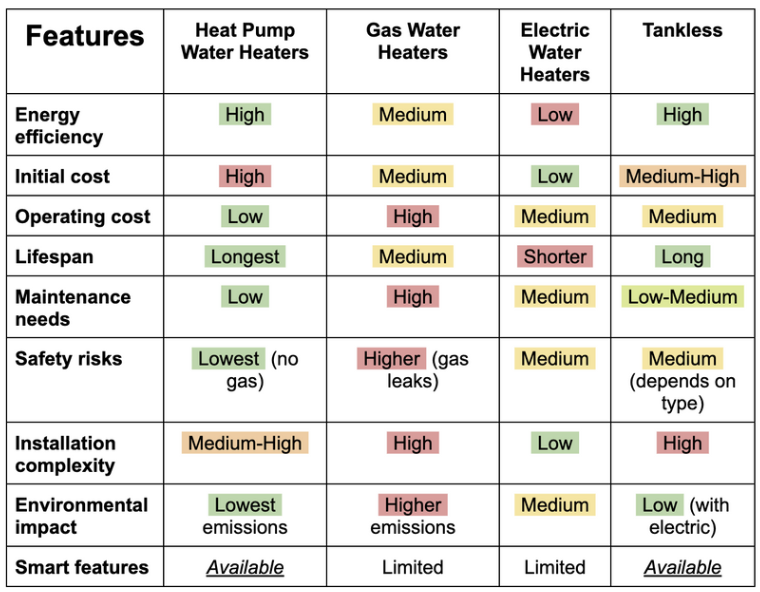
The Future of Home Heating
Why Heat Pump Water Heaters Are a Game-Changer
In an era increasingly focused on sustainable living, choosing energy-efficient solutions is crucial. If you’re considering a path toward greater sustainability, a Heat Pump Water Heater (HPWH), also referred to as a Hybrid Water Heater, may be a worthy option to explore. Unlike conventional heaters, HPWHs operate similarly to refrigerators by extracting heat from the surrounding air to warm water. This technology offers remarkable efficiency, which not only lowers your utility bills but also significantly reduces greenhouse gas emissions. Reducing reliance on gas or electricity for water heating aligns your household with global sustainability goals.
HPWHs boast clear advantages over conventional heaters, from prolonged durability to heightened safety, particularly in sidestepping hazards like gas leaks common in traditional gas units. For a comprehensive list of benefits, refer to the table below:

Before making the switch, it’s essential to ensure your home is suitable for a HPWH. Effective operation hinges on adequate ventilation. Spaces like basements or garages, with their ample airflow, are typically prime locations for HPWH installation. Consulting with a trusted contractor can guide you in maximizing available rebates and making informed choices. Seattle residents have access to a range of rebates and tax incentives that make adopting a HPWH more cost-effective. Utility companies often provide rebates for energy-efficient appliance installations, including HPWHs. Beyond this, regional, and state programs grant incentives or low-interest loans to homeowners keen on reducing their energy consumption:
Utility Rebates:
- Seattle City Light and Puget Sound Energy (PSE) offer rebates for purchasing and installing energy-efficient appliances including HPWHs.
- Puget Sound Clean Air Agency directs residents to various programs available in the region for home heating rebates, assistance programs, and natural gas service resources.
Local Programs:
- Tacoma Public Utilities and Tacoma Power offer various incentives including contractor discounts, deferred loans, and rebates.
- Energy Smart Eastside Heat Pump Campaign is a collaborative effort between the City of Bellevue and four other Eastside cities (Issaquah, Kirkland, Mercer Island, and Redmond) aimed at educating residents about and facilitating access to energy-efficient heat pumps.
State and County Programs:
- Washington State Housing Finance Commission’s Sustainable Energy Trust provides low-interest loans for energy-efficiency or renewable energy projects.
- Washington Natural Gas offers rebates between 17% to 23% on new equipment, including heat pumps, and assists in obtaining state and federal energy credit discounts.
- King County’s Program makes low-interest loans available for energy and water efficiency projects in eligible commercial and multi-family buildings.
If the right thing for you is to purchase a home or sell your current one this year or next year, get in touch with our team today and let us help you reach your goals!



